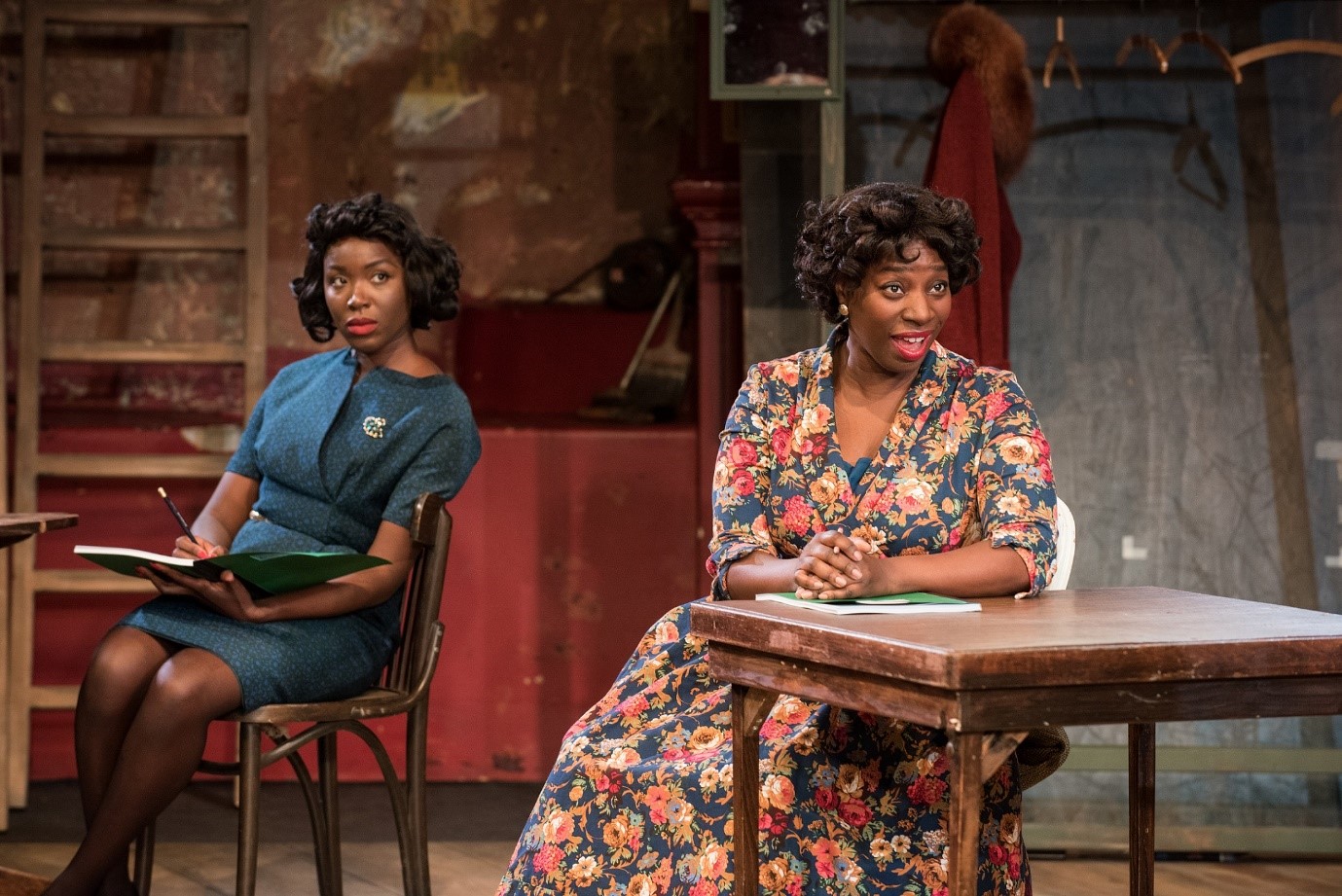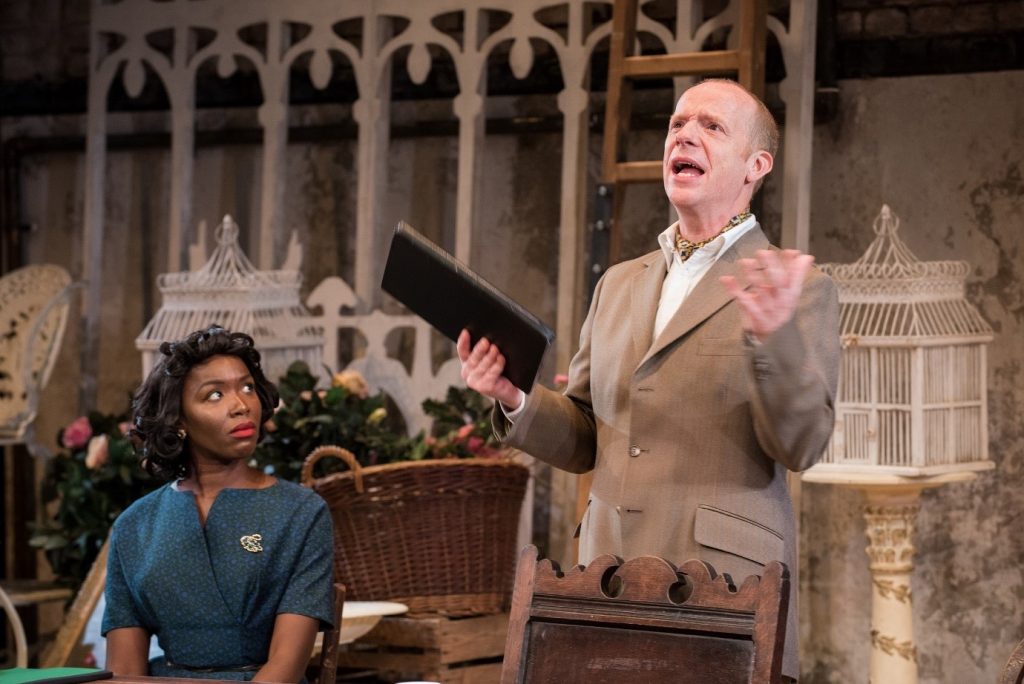
Here’s a woman for our attention this Black History Month… Alice Childress. Childress was an extraordinary woman and playwright. She was the first African-American woman to win an OBIE award (for her production of Trouble in Mind in 1956), to direct a show off Broadway, and to have a play professionally produced in New York. This autumn, one of her greatest works, Trouble in Mind, was shown at the Coronet Printroom, with a stellar cast.
A scathing indictment of racism in theatre, Trouble in Mind follows Wiletta Mayer (played by Tanya Moodie), a talented black actress who has spent a lifetime growing her career in theatre. Her dreams appear to be realised after being cast on Broadway in Chaos, an anti-lynching play with a white director. But she begins to find her role increasingly difficult to relate to as its clear the play is entirely tailored to be “relatable” to a white audience – a plot point that becomes all the more ironic when Childress refused a Broadway transfer of her play when producers attempted to change the script to be palatable for a more “commercial” *side eye* audience.
Throughout the play I was astounded by how many themes Trouble in Mind touched upon; intersectional feminism, the constant work black women do for a fraction of the acknowledgement (if any at all), even mansplaining. Wiletta’s character is constantly trying to give her input to the play and how to make her in-play character more real, but is silenced every time by the director. In one instance, her argument is dismissed as a white man comments, ”coloured women wake up each morning with their fists balled up, ready to fight.” There was a moment of recognition for all the women of colour in the audience, palpable to all there. It was such an important moment of representation and understanding for us all.
Childress’ witty script is peppered with examples of textbook white feminism, brought to fruition so perfectly by the cast with nothing more than knowing silences. One moment in particular rang true despite the play being 60 years old. A white woman attempts a motivational speech, saying; “my mother always told me never have limits on the horizon, your reach is infinite.” What she sees as a lovely sentiment is an incredibly tone-deaf proclamation. Her lecture ignores the fact that she is white woman speaking to an audience of black people in 1957. White feminism seems as present now as it was then, and the silence that follows said more than any words ever could. It was an incredible play to witness, and one that felt (maybe frustratingly) at home both in 1956 and 2017.
I spoke to Tanya Moodie after the show to understand a little more about the process of putting on the play.
The company and the cast were so brilliant, and it was clear what a family you all were, I was just wondering, as you played such a pivotal role in getting the play put on, how did that effect the rehearsal process for you? Was it difficult to give control over?
I remember at my first rehearsal thinking “oh my god I can’t believe this has come to fruition from me sitting on my living room floor on the carpet!” The reason I really wanted Laurence to direct it was from what I noticed in another play written by another amazing black woman writer, is that there are some experiences that are just known. I learned that actually… it is a huge advantage to have an innate understanding of what it means to be ‘other’ when directing. What it means to be this intersection, black woman verging on middle aged. The time in terms of when it was set and what it was like for black people – that stuff you understand through research, but there are some subtleties like when a character says this or that, and its impact that only those who have experienced this intersection will really get. That nuance can be lost if it’s not drawn out, so I was acutely aware that if I felt something needed to be highlighted that I spoke up. Obviously I’m not the director so I didn’t want to be stepping on anyone’s toes but I really felt it was important.

Faith Alabi and Jonathan Slinger in Trouble in Mind at Print Room at the Coronet. Photo by Hugo Glendinning.
I was wondering if you have words of advice for actors who were in your position or who are just starting out and find themselves also frustrated at roles that don’t seem to be appearing for them?
In my journey, I just did whatever was right in front of me. It’s a combination of two things, one is to think forward, to how they feel they want to be living their lives. Say someone is twenty right now – imagine yourself at 50, what would be around you? What have you accomplished? How are you living? You can do all the details as well, what makes you really happy. Happiness is fundamental, not what other people think they should be doing, what makes you happy. Then work backwards from there. Say “OK so where do you need to be at 40 to achieve that at 50?” and then 30, and then 25, and then 20. Bring it right down to now… Always bring it back to what makes you happy. That question surprises a lot of artists, because often what they think makes them happy is based off other people’s perceptions. This industry is plagued with comparison. And then just do what is in front of you, if you have the sketch of what makes you happy now, then opportunities will present themselves.
Trouble In Mind ran at the Coronet Print Room – more information & tickets for the final runs can be found here.









